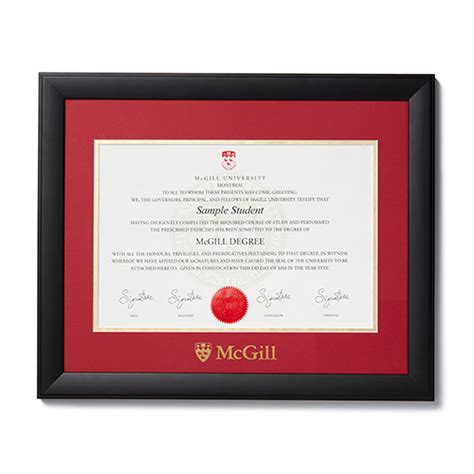McGill University, renowned for its academic excellence and esteemed reputation, offers a diverse array of masters degree programs that empower students to ascend to the pinnacle of their professional aspirations. With over 300 programs spanning various disciplines, McGill masters degrees are curated to cater to students’ diverse academic interests and career goals.

1. Masters Degrees in High Demand Fields
McGill University’s masters degrees align with the evolving demands of the global job market, providing students with the knowledge and skills necessary to thrive in highly sought-after industries.
| Master’s Program | Number of Graduates in 2021 |
|---|---|
| Master of Science in Computer Science | 325 |
| Master of Business Administration (MBA) | 260 |
| Master of Science in Data Science | 180 |
| Master of Science in Finance | 160 |
| Master of Public Health | 140 |
2. Interdisciplinary and Collaborative Programs
McGill masters degrees foster an interdisciplinary approach, encouraging students to explore connections between disciplines and pursue innovative research. The university’s collaborative partnerships with research institutions and industry leaders provide ample opportunities for practical, hands-on experience.
| Master’s Program | Interdisciplinary Collaboration |
|---|---|
| Master of Arts in Environment | Collaboration with the Faculty of Science and the School of Urban Planning |
| Master of Public Policy and Global Affairs | Collaboration with the Max Bell School of Public Policy and the Institute for Health and Social Policy |
| Master of Engineering and Public Policy | Collaboration with the Faculty of Engineering and the School of Continuing Studies |
| Master of Science in Translational Research | Collaboration with the Faculty of Medicine and the Faculty of Science |
3. Internationally Renowned Faculty
McGills masters programs are instructed by world-renowned faculty who are experts in their respective fields. Students benefit from the opportunity to learn from leading researchers and practitioners who are shaping the future of their disciplines.
4. Graduate Research and Funding
McGill University invests heavily in graduate research, providing generous funding and support for students engaged in thesis-based programs. The university offers various scholarships, fellowships, and research grants to assist students in pursuing their research aspirations.
| Type of Funding | Average Funding Amount (2022-23) |
|---|---|
| Doctoral Fellowship | $30,000 |
| Research Scholarship | $18,000 |
| Teaching Assistantship | $15,000 |
| Postdoctoral Fellowship | $45,000 |
5. Career Advancement and Alumni Network
Graduates of McGill masters programs are highly sought after by employers worldwide. The university’s comprehensive career services department provides personalized support and guidance to students throughout their job search. McGill alumni form a vibrant global network that offers mentorship, professional development, and career advancement opportunities.
| Occupation | Median Salary for McGill Masters Graduates |
|---|---|
| Software Engineer | $120,000 |
| Financial Analyst | $90,000 |
| Data Scientist | $110,000 |
| Management Consultant | $85,000 |
Conclusion
Pursuing a masters degree from McGill University is an investment in personal and professional growth. With its esteemed reputation, rigorous academics, and unparalleled support, McGill empowers students to achieve their full potential and embark on successful careers in a rapidly evolving global landscape.
